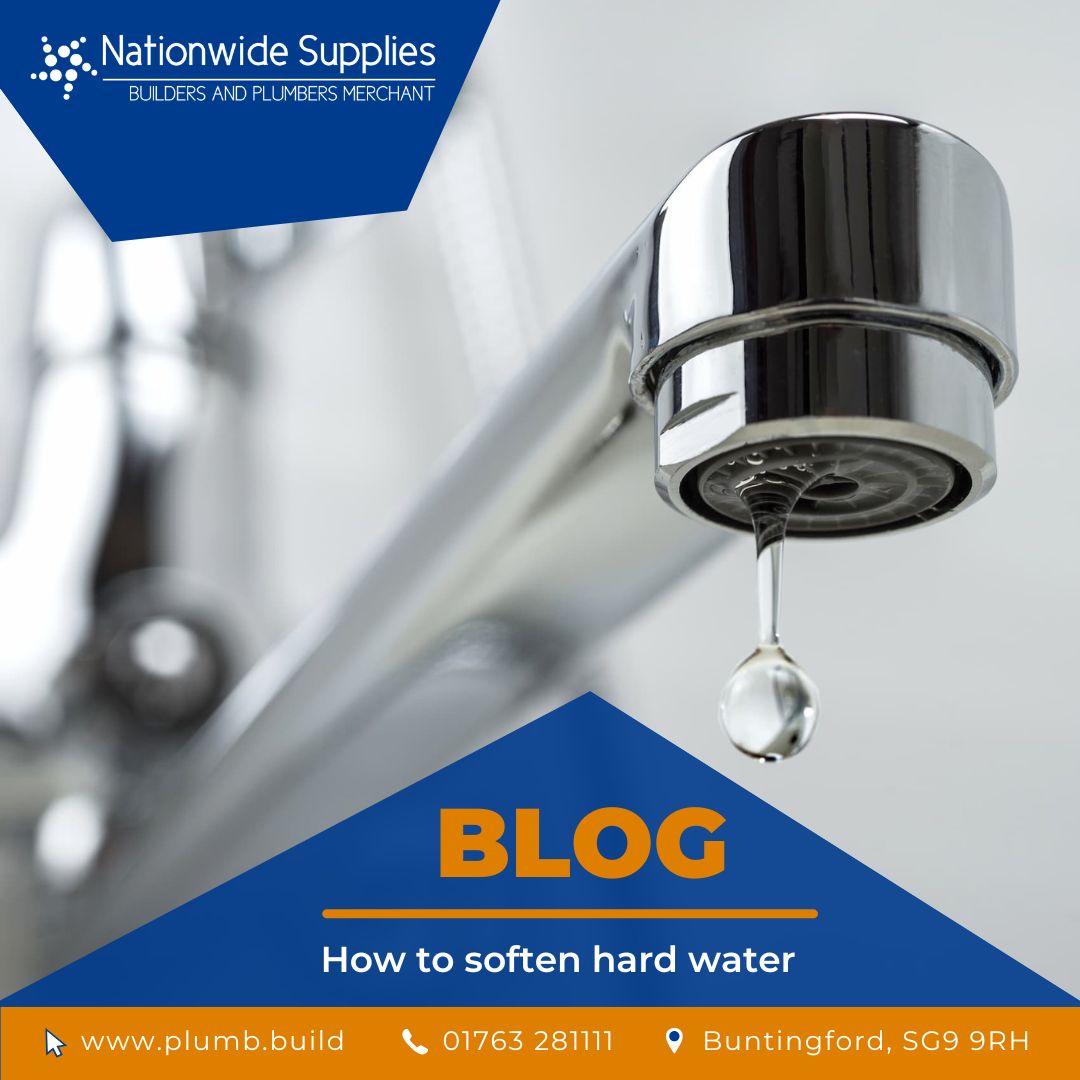Posted: 27th March 2025 | Author: Adam Brown | Category: Plumbing
Back to news
Hard water is a term used to describe water that has a high mineral content, typically caused by the geographical makeup of the area the water was sourced from. When water erodes the bedrock over time, the minerals within the rock are released into the water.
While minerals can be good for your health, hard water can be problematic in other ways. Notably, it can leave behind mineral deposits in pipework and metal fittings - which can lead to loss of efficiency and even permanent damage.
As a general rule, the softer the bedrock, the more likely you are to have hard water. That’s because softer rocks erode and release minerals more quickly than harder rocks. As a result, over 60% of the UK population lives in an area with hard water, and for these people, the problem can be a real conundrum.
Below, we discuss how you can tackle hard water in the home, as well as touching on some techniques to protect against or resolve the issues caused by hard water.
It’s important to be aware that hard water is not dangerous in terms of health and safety - you can safely drink hard water just as you would soft water, so there’s no immediate rush to alter your supply if you’re in a hard water area.
However, the effects of hard water can lead to higher living expenses, particularly in the form of replacement plumbing and increased heating costs. As a result, many people who live in an area of hard water may want to soften their supply.
When it comes to softening hard water, there’s only one way to truly do so. Using a water softener connected to your water supply ensures that your water is softened at the point of supply. In other words, whether you’re using a tap, your shower or flushing your toilet, the water will have been softened by the time you see it.
Water softeners contain refillable salts that help to reduce the mineral content of your water through a process known as ion exchange. Essentially, the calcium and magnesium ions in the water (i.e. the mineral content) is exchanged for the sodium ions from the salt. This leaves your water a little saltier, but it solves the problem of hard water affecting your plumbing.
Alternatively, you could look into the potential of softening your water at the point of access. This means using individual filters on appliances such as showers, taps and washing machines to soften the water as it’s used - and since you don’t have to soften all the water in your home, that means you could have a hard water tap for drinking from to get the health benefits of the mineral content. Plus, some people prefer the taste!
In addition to softening your water, there are plenty of tips and techniques you can employ to tackle the effects of having hard water in your area.
If you have hard water, chances are that your appliances such as washing machines, dishwashers and kettles will begin to develop limescale - the mineral deposits left behind by hard water.
To combat this, you can use a descaling cleaner in your household routine - literally, a cleaning agent designed to help remove limescale and restore your appliances to their original state. If a chemical cleaning agent doesn’t appeal, research at-home alternatives. Some people suggest that vinegar can be a handy solution.
This kind of mineralisation can also occur within your pipes, which can sometimes contribute to blocked sink and bath drains. If this happens, you can get drain unblockers specially intended for hard water blockages that can help you to flush out your pipes and resolve hard water damage.
Sometimes, the best way to avoid limescale build-up is simply to wipe down certain surfaces every time they’re used. This applies mostly to your bath or shower set-up, but you can also make sure to wipe down your sinks and basins regularly to avoid minerals building up over time.
As well as limiting build-up on those surfaces, this also helps to prevent hidden build-up in the places you can’t see, such as drains and plugholes. Like a lot of household maintenance tasks, doing a little often can make a big difference.
Another impact of hard water is that it can lead to dry skin and hair if you’re not using the right products. Hard water can be drying, so if you notice any signs of that, consider switching to more moisturising alternatives.
This is especially important for those products you use with water - think shampoo, conditioner, soap and hand wash. Making a small switch such as this can help you to avoid feeling the effects of hard water build-up.
Back to news
The Author: Adam Brown
With a background as a Mechanical Engineer, I started Nationwide Supplies alongside my brother with a vision to modernise what seemed a stuck-in-its-ways industry in the builders merchant sector. Since 2011 it has been my goal to source quality products at the correct prices to be able to offer a saving to customers along with high quality customer service which offers quick delivery and superior technical knowledge in the industry.